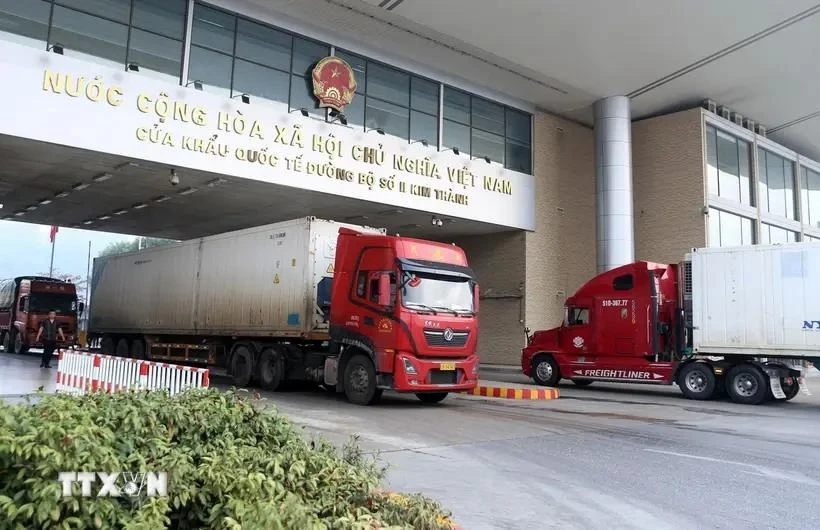Beijing ( WNAM MONITORING):Vietnam and China have been tightening their economic and trade ties over the recent years, reflecting a strong vitality, said the International Business Daily, the mouthpiece of the Chinese Ministry of Commerce.
An article published by the daily said in the first half of this year, durian remained Vietnam’s strongest export to China, of them over 90% fresh. Another Vietnamese fruit ready to penetrate the Chinese market is fresh coconut. The two countries have agreed to finalize the signing of a protocol on phytosanitary requirements for fresh Vietnamese coconut exports to China.
The newspaper quoted General Secretary of the Vietnam Fruit and Vegetables Association Dang Phuc Nguyen as saying that Vietnam’s official export quota agreement with China will present a significant opportunity for the Vietnamese coconut industry. Vietnamese fruit has a competitive edge in the Chinese market thanks to geographical proximity, short transport times, and low costs.
Statistics show that bilateral trade rebounded strongly in the first half of this year, reaching nearly 95 billion USD. Vietnam’s imports from and exports to China amounted to 67 billion USD and 27.8 billion USD, up 35% and 5.3% year-on-year, respectively.
The countries have signed bilateral and multilateral agreements, including the ASEAN-China Free Trade Agreement (ACFTA) and the Regional Comprehensive Economic Partnership (RCEP). With these pacts, the bilateral trade is expected to continue growing in years to come, particularly in sectors such as agriculture, textiles, and electronics. According to the article, the signed bilateral agreements have significantly strengthened the strategic linkage between China’s “Belt and Road Initiative” and Vietnam’s “Two Corridors and One Economic Belt” framework. In the future, they also look to enhance cooperation within multilateral frameworks to meet their respective economic development needs, promote regional economic connectivity, and boost the economic vitality and global competitiveness of the Southeast Asian region.
In terms of connectivity, the first international freight train from Shijiazhuang (China) to Hanoi (Vietnam) was launched in July 2023, running more than 2,700 km. In the future, the two countries are set to accelerate connectivity construction and provide more convenient channels for economic and trade cooperation between them and in the region.
The Vietnam-China ties in economy and trade have many highlights. Vietnam attracted investment from 84 countries and regions in the first half of the year, with China leading in the number of new projects, accounting for 29.1% of total foreign-funded projects in the Southeast Asian nation. This reflected that China’s economic investment in Vietnam has become an important driving force for the development of bilateral relations, said the article.
In tourism, the number of Chinese visitors to Vietnam in the first three months of this year reached nearly 890,000, up 634.5% year-on-year. In terms of people-to-people exchange, 60 provinces and cities in Vietnam have signed friendship and cooperation agreements with their Chinese counterparts.
According to the newspaper, with the extensive cooperation between the two countries in industrial and supply chains, and standardisation, their economic and trade ties are poised to open up a brighter future.


